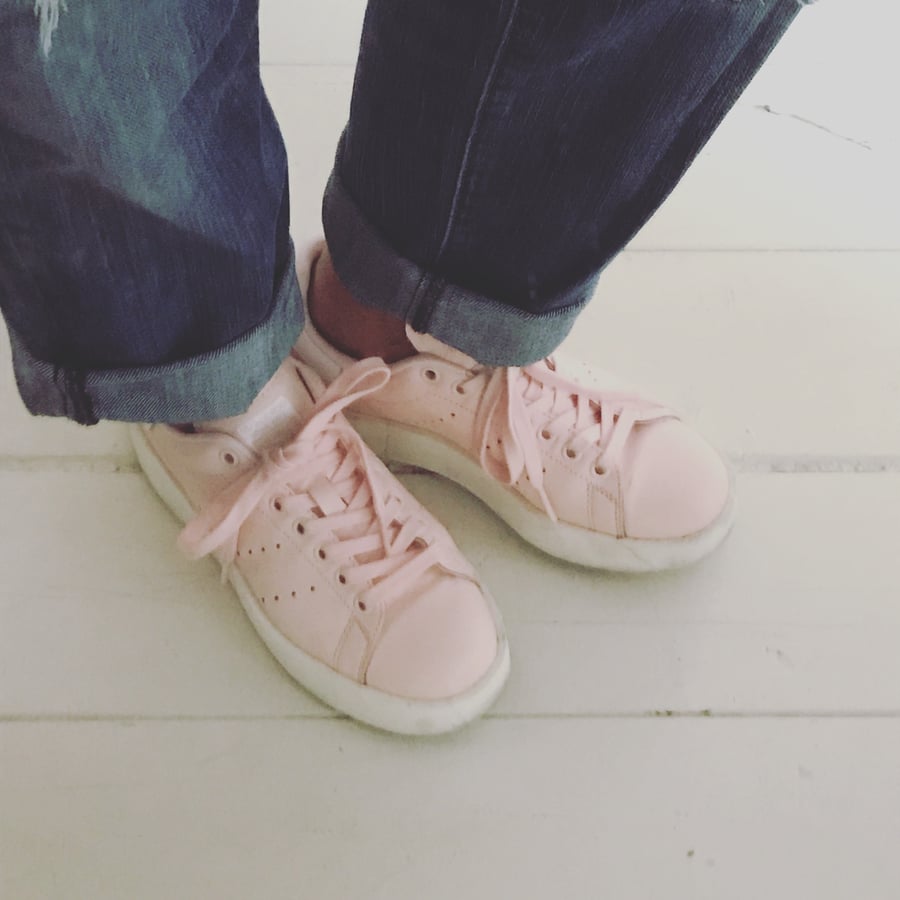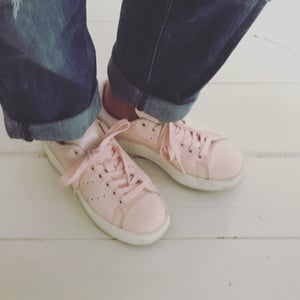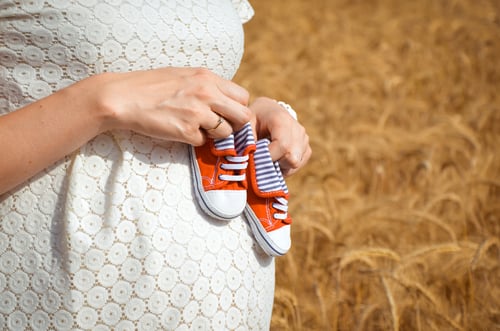
It’s not an urban legend: Feet can actually grow during pregnancy. In fact, there are logical, physiological reasons to explain the phenomenon. But before you go replacing all of your shoes, keep in mind that some “growth” is actually fluid buildup that eases after childbirth.
Temporary Swelling
Swollen feet and ankles are a notorious part of pregnancy, especially the further along you get. Around the second trimester, many women experience swelling in their feet. That’s due to the increased amount of fluid and blood that your body is circulating in order to prepare it for delivery. In addition, your circulation may slow down as your uterus expands, which can also cause fluid build-up in feet.
But sometimes your shoes are bursting at their seams and you’re not sure whether it’s permanent foot growth or extra water weight.
Check to see whether you have more shoe room in the morning, or after you’ve elevated your feet. In that case, it’s probably swelling, rather than actual growth. Of course, if swelling becomes alarming, in your feet and elsewhere, it’s important to call your obstetrician right away.
Permanent Foot Growth
Some pregnant women experience actual, lasting foot growth for a few interconnected reasons. First, fairly rapid weight gain puts strain on the muscles and ligaments in your feet. In addition, during pregnancy a hormone called relaxin is released that helps soften the pelvic area to make delivery easier.
But relaxin can also affect other parts of your body, including your feet. As the ligaments stretch, the feet expand. That loosening action may also cause arches to lower. As this happens, the overall size of your feet can both lengthen and widen.
What Can You Do?
Permanent foot growth is not serious in itself. But if you’re concerned about flatter feet or loosening joints, as well as temporary swelling, there are a few things you can do.
- Try foot exercises. These will help your foot muscles support your growing weight, rather than start to collapse. Raising up on your toes when standing, then shifting to “land” on your heels is a classic exercise, and can even be modified to do when sitting.
- Add support. Look for shoes that feature arch support, or add supportive insoles. These are better choices than flip flops — and, obviously, strappy high heels.
- Follow anti-swelling measures. These include cutting back on salty foods and junk food, and wearing compression socks and stockings.
- Monitor your weight gain. Checking in with your obstetrician about whether you’re exceeding the average is a good idea. Too much weight can lead to permanent changes in your feet. Taking walks and eating sensibly will help in that regard.
We’re Here to Help
If the only permanent physical change you’ve experienced when your pregnancy is over is increased shoe size, you needn’t worry. Most of the time, foot growth isn’t painful, and beyond being a nuisance isn’t anything to worry about.
But if your arches have been seriously compromised, you may find that consultation with a foot and ankle specialist may help. That’s also true if you’re worried about ligament damage. Call Sweeney Foot and Ankle Specialists today for an appointment. We have locations in The Woodlands and Magnolia, Texas, for all of your foot and ankle concerns.






